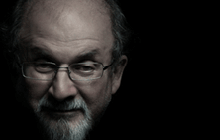The classical definition of philosophy is “the love of wisdom.” In the Hebrew tradition, wisdom means “living skillfully.”
For centuries, individuals have aspired to be philosophers in the classical sense, because they have desired to pursue wisdom in its fullness. However, the notion of “wisdom” (along with much of philosophy, theology, ethics, and other subjects dealing with metaphysics) has increasingly been relegated to the realm of those things considered subjective and unknowable.
This makes The Wisdom Tradition less important in the modern university. This is in contrast to the university culture of the past, in which knowledge was believed to yield understanding, and understanding wisdom. Wisdom was the ultimate objective of higher education. This is no longer the case.
All this notwithstanding, the reality is that wisdom is both relevant and interesting. Much of our literary landscape is marked by works that elevate the pursuit of wisdom. Aesop’s Fables, for example, is a compilation of short stories that use literary illustration to make important points. Many young children have been exposed to the moral lessons found in “The Tortoise and the Hare,” “The Fox and the Grapes,” and countless other fables Aesop penned.
William Bennett’s books entitled The Moral Compass and The Book of Virtues are essentially primers on moral character with an emphasis on the importance of wisdom. G.A. Henty, known in his day as “The Prince of Storytellers,” is another example of a prolific writer who focused his craft on teaching wisdom. Instead of fables, his genre was historical biographies.
Indeed, most classic literature is aimed, more or less directly, at contributing something of value to the wisdom tradition. The pursuit of wisdom – even as we are being told it is not knowable – is something that we see in every culture known to man, across the ages.
OBJECTIVE
This Thinker Education course experience has been created to illustrate that truth exists, can be known, and can be communicated. It also aims to help you assess the means by which wisdom is knowable. If it is knowable, then one must embrace the idea that there are both wise and unwise choices, which lead to lives lived more or less skillfully – lives lived with greater or less abundance, in all of life’s dimensions. It is in this sense that Jesus said “The Enemy came to steal and rob and destroy; but I have come to point you to life, the abundant life.” (John 10:10). Other religious philosophers have made the same contrast in different ways.
You will be listening to several audio recordings from nationally renowned storyteller Jim Weiss. Jim has been a storyteller for over 25 years and is the recipient of over 80 national awards from The American Library Association, Parents Choice Foundation, Film Advisory Board and more. He has received prized acclaim and recommendations from many prestigious groups, has performed at The White House Easter service, and starred in a PBS storytelling program that won a Northern California Emmy Award for Best Children’s Show. Regardless of your age, you will enjoy these audio productions. For a complete library of his content, please visit www.greathallproductions.com.
Enjoy this Thinker Ed course experience exploring the question: IS WISDOM ATTAINABLE?
Version 1.2











